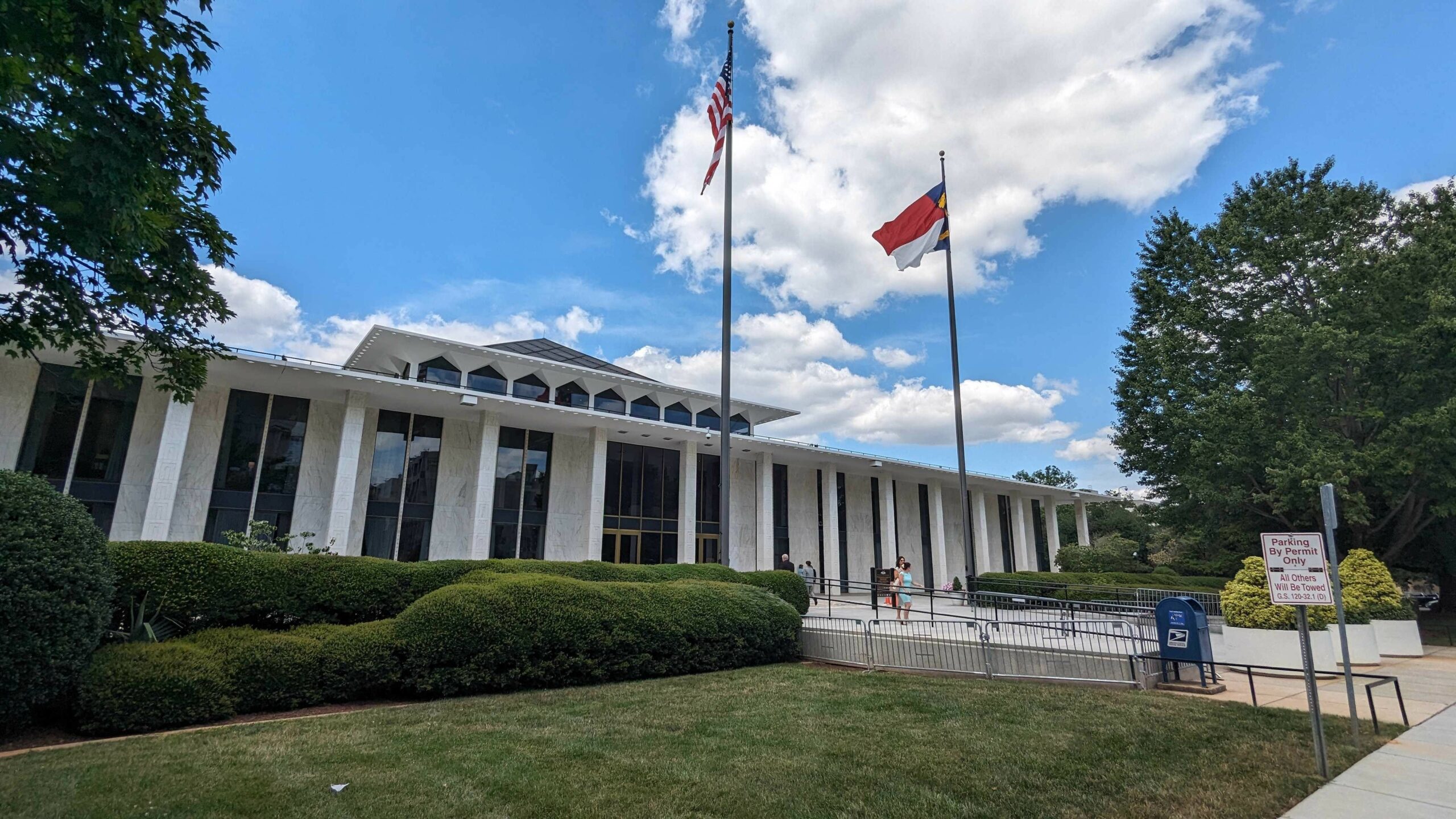The start of a new year in North Carolina also means a round of new laws that were set to take effect on January 1. One of the most high-profile such laws is HB10, which requires county sheriffs to comply with detainer requests from the federal office of Immigration and Customs Enforcement (ICE).
Detainer requests relate to inmates in county jails who are suspected of being in the U.S. illegally: ICE officials ask counties to hold those inmates for up to 48 hours after they would otherwise be free to go, allowing ICE to take them into federal custody. Defenders of the program say it’s easier, safer, and more cost-effective than trying to re-arrest them in public. But opponents say it’s not lawful or constitutional to hold any inmate in jail after they’re free to go – and there’s no reason why ICE officials should need an extra 48 hours in the first place.
97.9 The Hill’s Aaron Keck recently discussed the issue with Orange County Sheriff Charles Blackwood.
Click here to listen to their full conversation, which also includes a discussion of ongoing public safety initiatives and current trends in law enforcement. (Blackwood says certain types of crime are on the rise, notably domestic violence and fentanyl-related offenses – but contrary to popular belief, the overall violent crime rate is actually down.)
The transcript below has been lightly edited for clarity.
Aaron Keck: You’ve spoken out against bills like (HB10) in the past. What are your thoughts about this one?
Charles Blackwood: We’re here to take care of the people that live, work, raise their families, and travel through this county, and we’re going to continue to do that. The first thing I’ll say about the legislation is that – just by virtue of its title – it’s offensive to me to suggest that we don’t cooperate with federal authorities. I have federal task force officers in my agency who are sworn federally. We cooperate with every federal agency. (But) while ICE is probably one of the largest law enforcement agencies in the United States, and has the biggest pocket of money, we are being requested to house their detainees at no cost. That affects our operations. It affects the taxpayers of this county. And they should be upset that we’re being asked to do that.
Keck: How much of a cost are we talking about?
Blackwood: About $118 a day, for an inmate to stay in the detention center. And you know, we have a program with (U.S. Marshals): if they have federal inmates that they need detained, because they’re moving them from place to place or court hearing to court hearing, we are a holding center for them. We have an agreement. We have a contract signed, and they pay for that. (But) Homeland Security doesn’t want to do that.
By state law, there’s one way to get into jail, and that is with a commitment order from the courts. And there’s one way to get out of jail, and that’s with a release order from the courts. ICE is doing neither. (And) if I’ve got someone in my jail, and they meet the requirements for release – if I keep them (in jail), literally, that’s kidnapping.
Keck: How often does this happen in Orange County?
Blackwood: Over a three-year period, we’ve received approximately 17 detainers. And of those, zero were picked up (by ICE).
Keck: What would be a better alternative?
Blackwood: There is a great solution, and we’ve asked many times. If Homeland Security wants a violent felon in my (jail), get a federal order from a federal magistrate, bring that to me, we’ll hold the individual until they come and pick them up, and we’ll bill the federal government for the time that they were in our facility. That’s the solution. And it’s really very simple.
Keck: You’ve gone to them and said that, I assume –
Blackwood: Multiple times.
Keck: What’s been the response?
Blackwood: The response is – (our) analogy is that they’ve given me a diesel truck to drive, and I’ve asked for fuel, and they’ve given us gas, (but) we need diesel. They’re not giving us what we need, to do the job they’re asking us to do.
Keck: One thing we’ve talked about in the past is the extent to which law enforcement needs to be in the business of building trust with residents, and when it comes to Latino residents, laws like this can make that harder. So what do you do to move the dial in the opposite direction, and keep building trust in a positive way?
Blackwood: Talk to the community. You know, by and large, the folks in Orange County are hardworking folks. (They) go to church, go to school, go home, go back to work the next day, and they leave other people alone, and they just want to live and work and raise their family here. And that’s one of the pledges we make to them: we take care of them, regardless of their status. We’ve been accused of having people running through the community pilfering and committing violent crimes and not doing anything about it. And that’s just not the case. That’s not what’s happening.
Chapelboro.com does not charge subscription fees, and you can directly support our efforts in local journalism here. Want more of what you see on Chapelboro? Let us bring free local news and community information to you by signing up for our newsletter.











